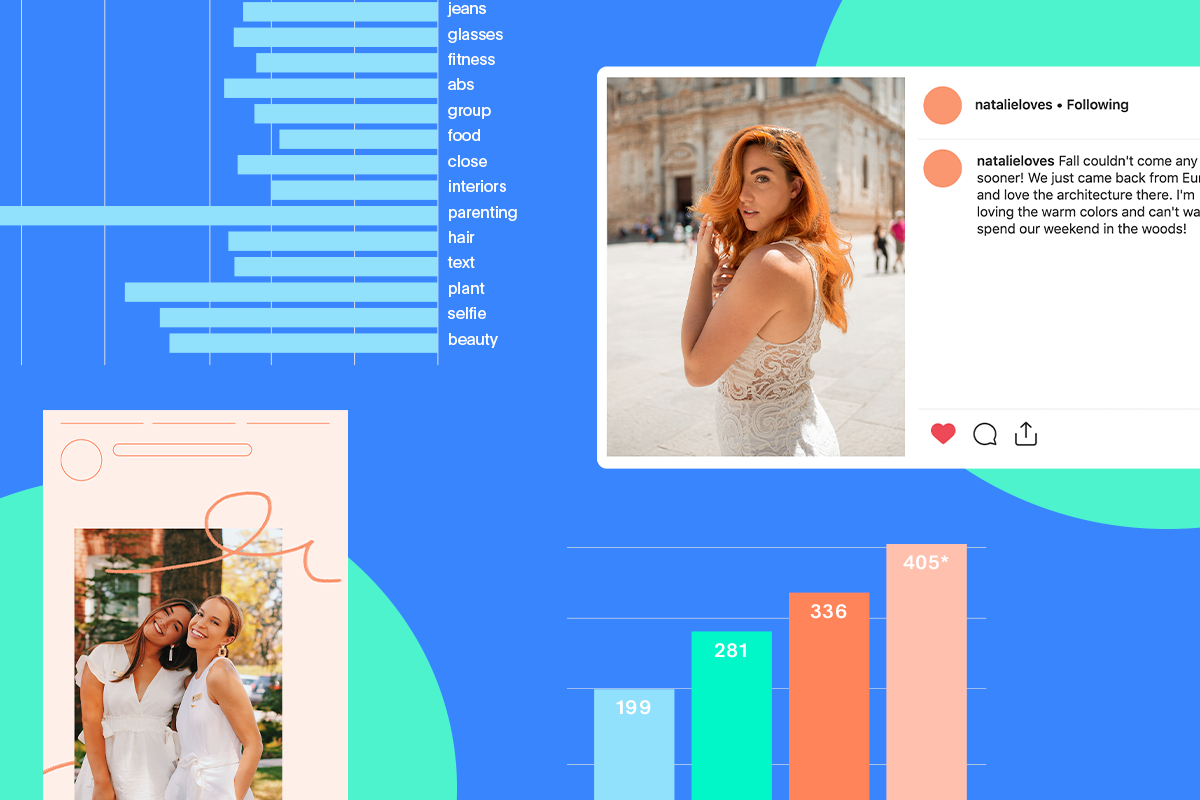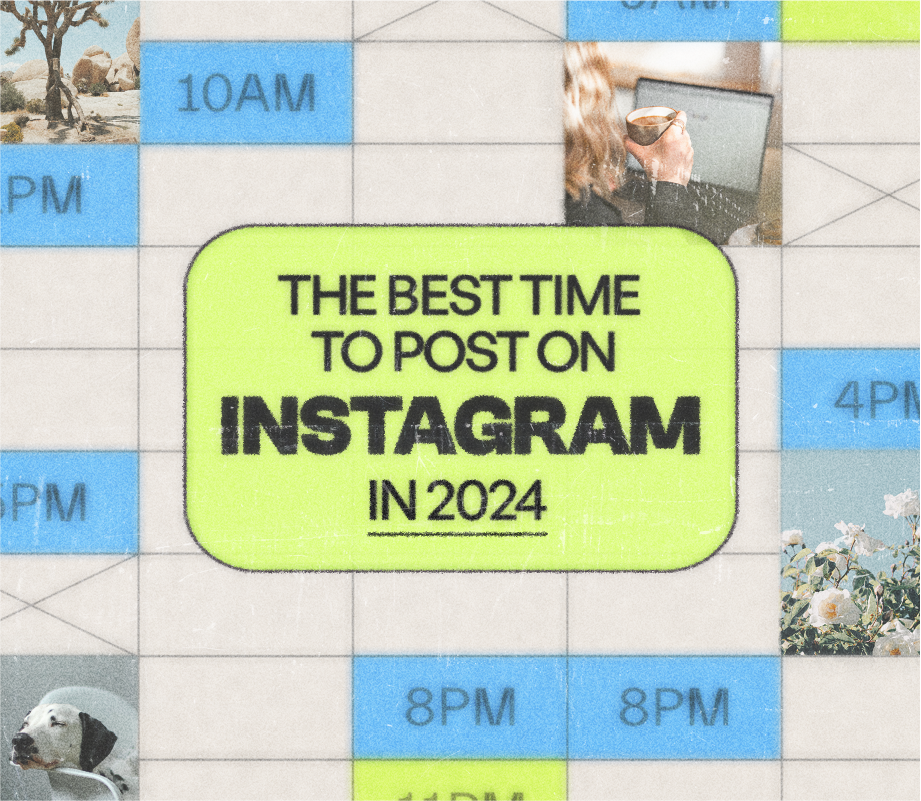Influencer marketing is set to become an $8 billion dollar industry in 2020 — so it’s the perfect time to release The State of Instagram Influencer Marketing Report!
We teamed up with the experts at influencer marketing platform Fohr to deep dive into influencers’ behaviors and Instagram posts, and identify the global marketing trends that will shape Instagram in 2020, and beyond.
From changes in caption length and hashtags, to post frequency and which types of influencers get the best engagement, we’re revealing all!
Sign up now to download the complete State of Instagram Influencer Marketing report and we’ll send it straight your inbox!
Instagram Influencer Marketing Report Trend #1: Posts to the Grid are Less Frequent
When it comes to creating an Instagram-worthy grid, we know posting the perfect content takes time and effort.
And for influencers, every post has an impact on their engagement rate and their overall feed aesthetic.
Plus, with the launch of IGTV and the still-growing popularity of Instagram Stories, we had a hunch that influencers were posting to their grids less frequently. But by how much?
After analyzing their influencer database, Fohr determined that influencers’ posting habits are changing – particularly their posting frequency, which is dropping lower and lower.
In fact, in 2020, Fohr predicts that influencers will be posting to their grid just twice a week!
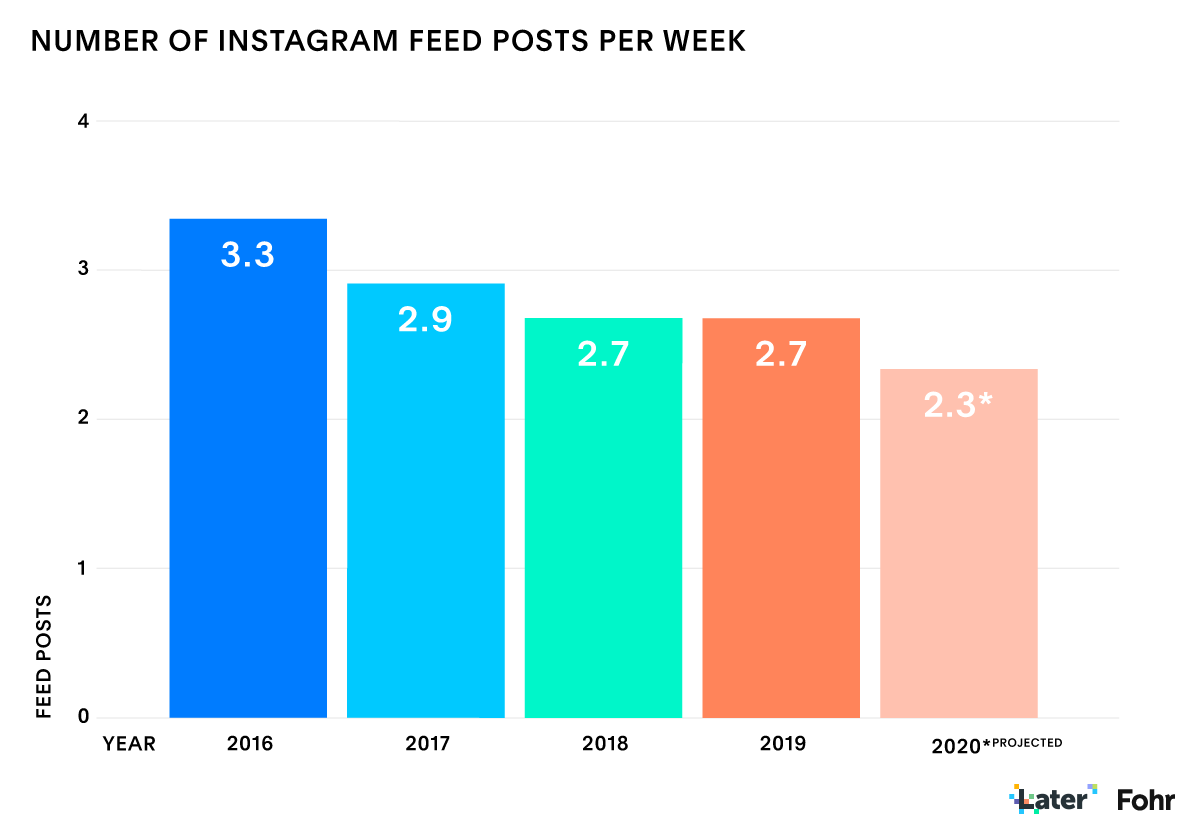
And that’s not just the mega Instagram influencers — almost all influencers, regardless of their follower count, are predicted to share less content to their grid each week.
However, there is one exception to this trend.
Mid-tier influencers with 250-500k followers are projected to increase their posting frequency for 2020.
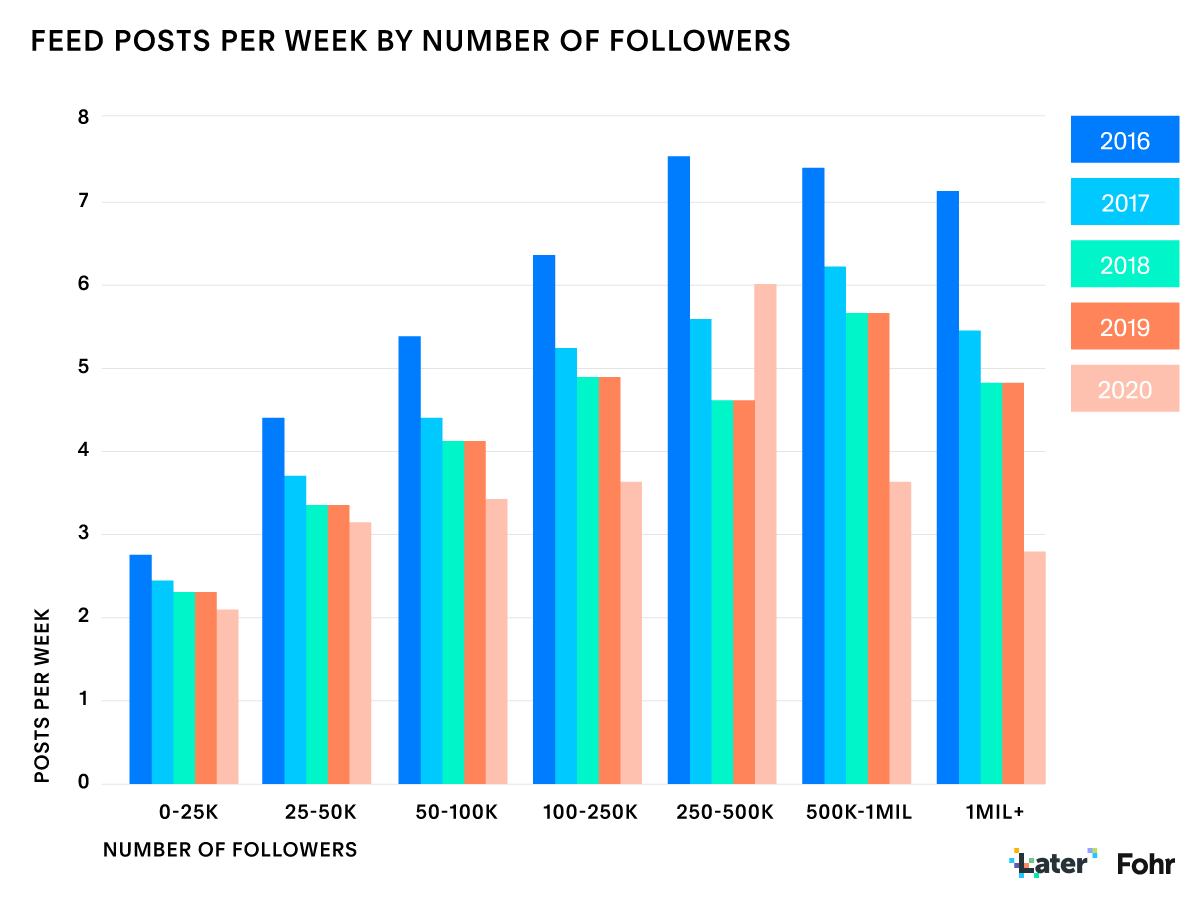
Influencers like Victoria from In The Frow, post almost daily, which gives them a strong advantage over their Instagram competitors — simply because their posts appear in their followers’ feeds more often.
For brands, this can make a real difference when it comes to deciding who to work with on a campaign or project.
While not every brand needs to work with a high-posting influencer to make an impact, knowing how often they plan to post to their grid can help you better negotiate a campaign package.
Influencer Marketing Report Trend #2: Longer Captions Get Better Results
Instagram used to be all about the visuals — a cohesive aesthetic, high-quality photography, and on-brand images were a must.
But now we’re seeing Instagram captions take center stage for influencers on the platform!
You may have spotted influencers sharing lengthy captions on their posts to give greater insight into their world or to share their knowledge.
Take, for example, Quigley Goode from Officially Quigley — the content creator is known for sharing in-depth posts with her 240K followers, and this trend doesn’t change when it comes to her sponsored posts either.
In fact, Quigley shared her thought process and purpose behind her long-form captions in our LaterCon session! Learn more from her here:
But just how much are Instagram captions growing?
Well, according to the research by Fohr, the average caption length has more than doubled since 2016.
And by 2020, our feeds will be filled with an average caption length of 405 characters — which averages out to be 65-70 words!
Not sure what that looks like? Check out Sarah Nicole Landry from @thebirdspapaya! She writes captions for her sponsored posts that are an optimum length to draw in users, while sharing plenty of product information:
Want to learn more about crafting engaging captions? Check out our How to Write Engaging Instagram Captions free video training with Elise Darma and Taylor from Later!
Influencer Marketing Report Trend #3: Instagram Hashtags are on the Rise
Instagram has gone through a lot of changes in the past year, including new features, tools, and a whole new video platform.
But one thing that stayed the same — the importance of hashtags on Instagram!
There’s no denying that using relevant, targeted hashtags on your posts is still one of the best ways to get discovered by new audiences on Instagram.
And for brands working with influencers, this can translate into more engagement, more followers, and more customers for your business.
Fohr reviewed influencer posts over the last 4 years and learned that the average number of hashtags in an influencer’s post has almost quadrupled!
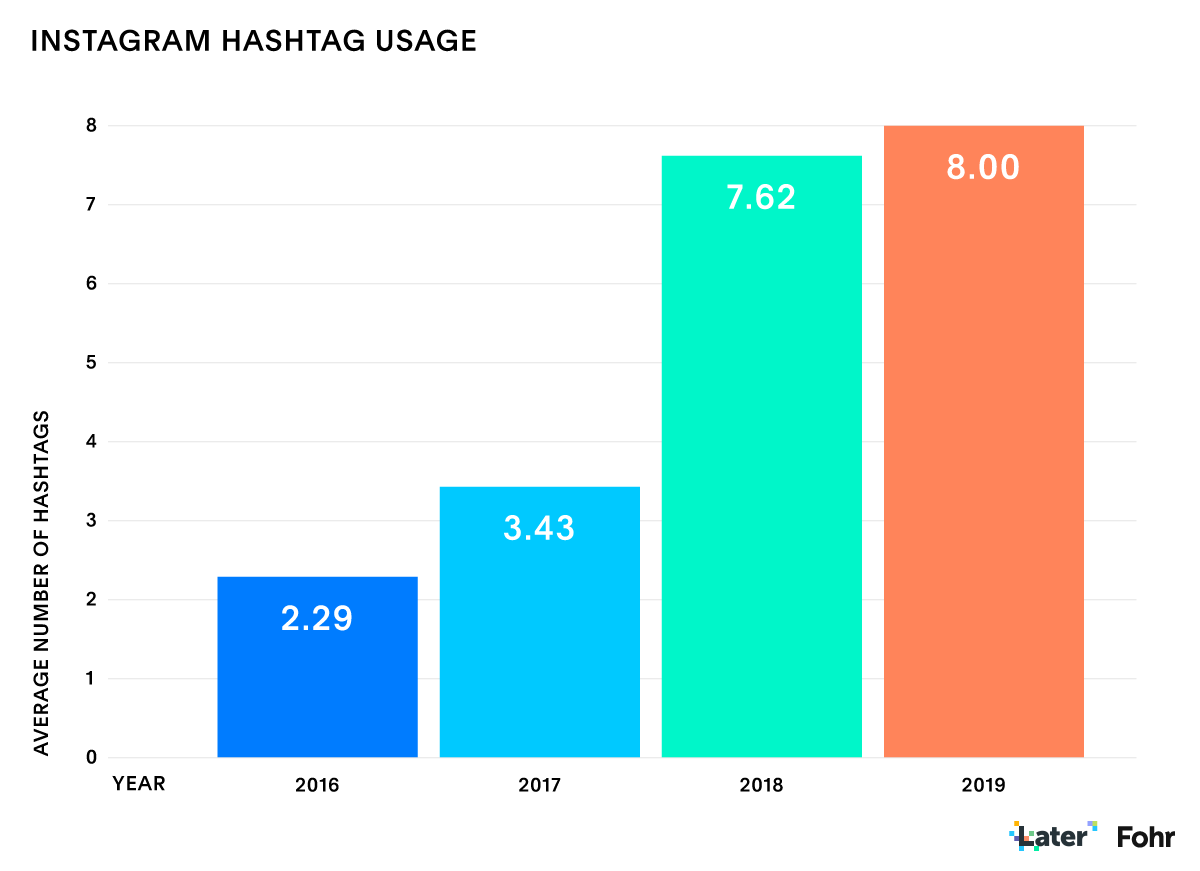
And just in case we haven’t convinced you of the importance of hashtags, Instagram posts that include hashtags get more engagement.
And that’s not all. After analyzing influencer posts that contain hashtags, the data shows a greater number of hashtags actually equals a higher engagement rate!

So it’s worth the time and effort to find the perfect hashtags to use on your influencer sponsored posts!
TIP: 10+ hashtags per posts is the sweet spot for influencers as they get on average a 6% engagement rate.
Ready to learn more about Instagram influencer marketing and how it’s shaping up in 2020? Download our free State of Influencer Marketing Report to learn more from the experts at Fohr and Later!
Influencer Marketing Report Trend #4: Worldwide Key Posting Times Revealed
From LA to Sydney, Later and Fohr have reviewed millions of Instagram posts to understand when the best time to post is for brands, businesses, and influencers alike.
Earlier this year, Later analyzed 12 million Instagram posts, posted in multiple time zones around the world from accounts ranging from 100 to 1 million+ followers to find out that the best time to post.
And what we discovered was that the best time to post on Instagram is between 9am-11am for accounts in EST.

But we wanted to take it a step further, with the help of Fohr! Now we can reveal the global best times to post for PST, EST, GMT and AEDT!
Here’s a quick outline of what we learnt:
LA: 8:00am PST (16:00 UTC)
New York: 11:00am EST (16:00 UTC)
London: 7:00pm GMT (19:00 UTC)
Sydney: 8:00am AEDT (21:00 UTC)
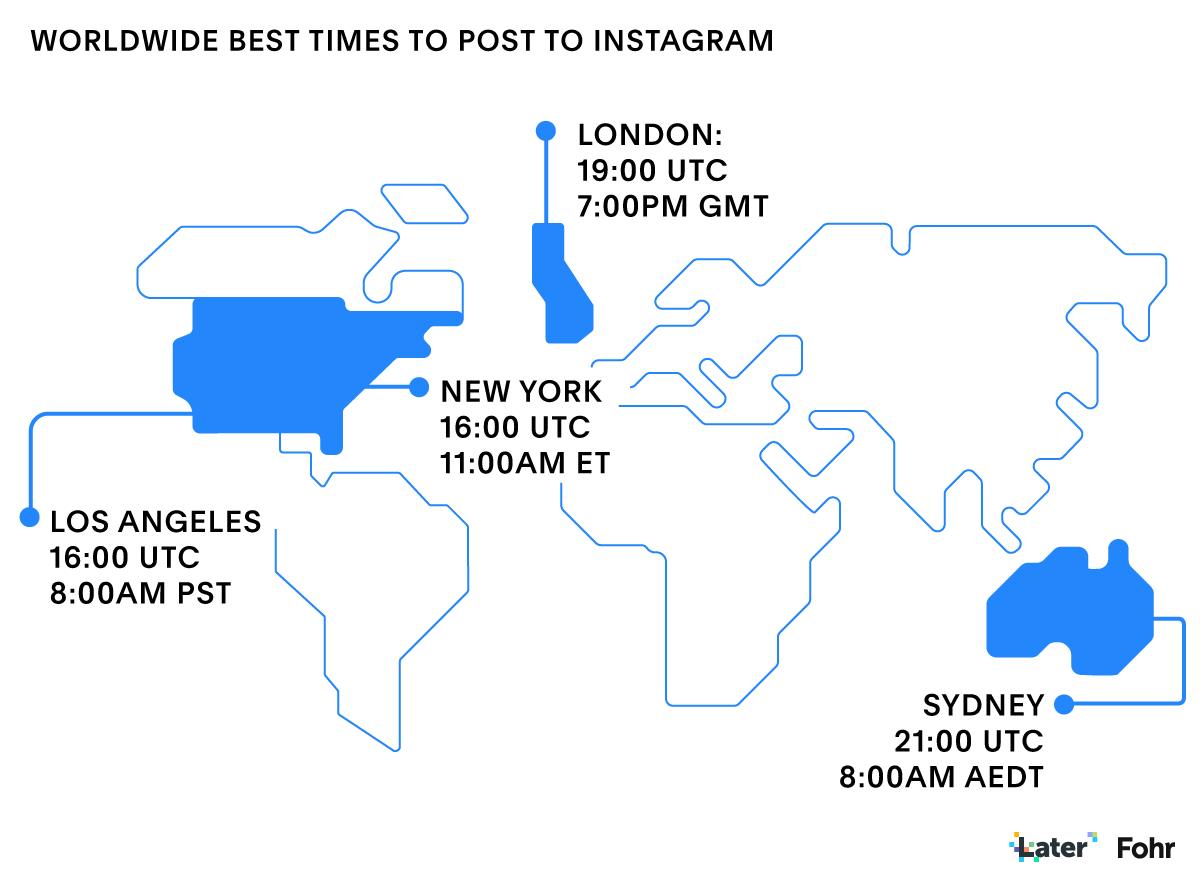
While this global best time to post data is a great starting point, it’s important to find out what your personalized best times to post are based on your unique audience if you want to improve your engagement.
Since Instagram dropped the chronological feed and started prioritizing “new” content on people’s feeds, your best shot at getting your content in front of your followers is by posting when most of them are actively scrolling the app.
So if you want to beat the Instagram algorithm in 2020, you need to optimize your posting time for when the majority of your followers are online.
If you want to skip the experiments and get right to the good data, Later can take all the guesswork out for you!
Later’s Best Time to Post feature automatically calculates your 7 top posting times based on your best performing posts from the recent month:
Since every Instagram account is different, we wanted to create a feature that would give you your personalized best posting times — and that’s exactly what Best Time to Post does!
If you’re on one of Later’s business plans, which start at just $19/month, your best times to post will automatically be highlighted in your weekly content calendar, making it super easy to schedule your Instagram posts for when your audience is most active!
Influencer Marketing Report Trend #5: Micro-influencers Deliver Higher Engagement Results
Instagram influencer partnerships are by far the best performing platform for brands to reach new audiences quickly.
With an average 3.21% engagement rate compared to 1.5% across all social networks, having a strong influencer campaign strategy is a real asset to brands looking to grow on Instagram.
So more than ever before, we’re seeing brands and businesses investing a high portion of their budgets to influencer marketing — simply because, when done right, it works!
And after analyzing influencers’ posts, it’s micro-influencers who have the highest engagement rates (averaging at 7%) on their feed posts!
In fact, influencers with 0-25K followers had higher engagement rates regardless of their genre, target audience, or topics.
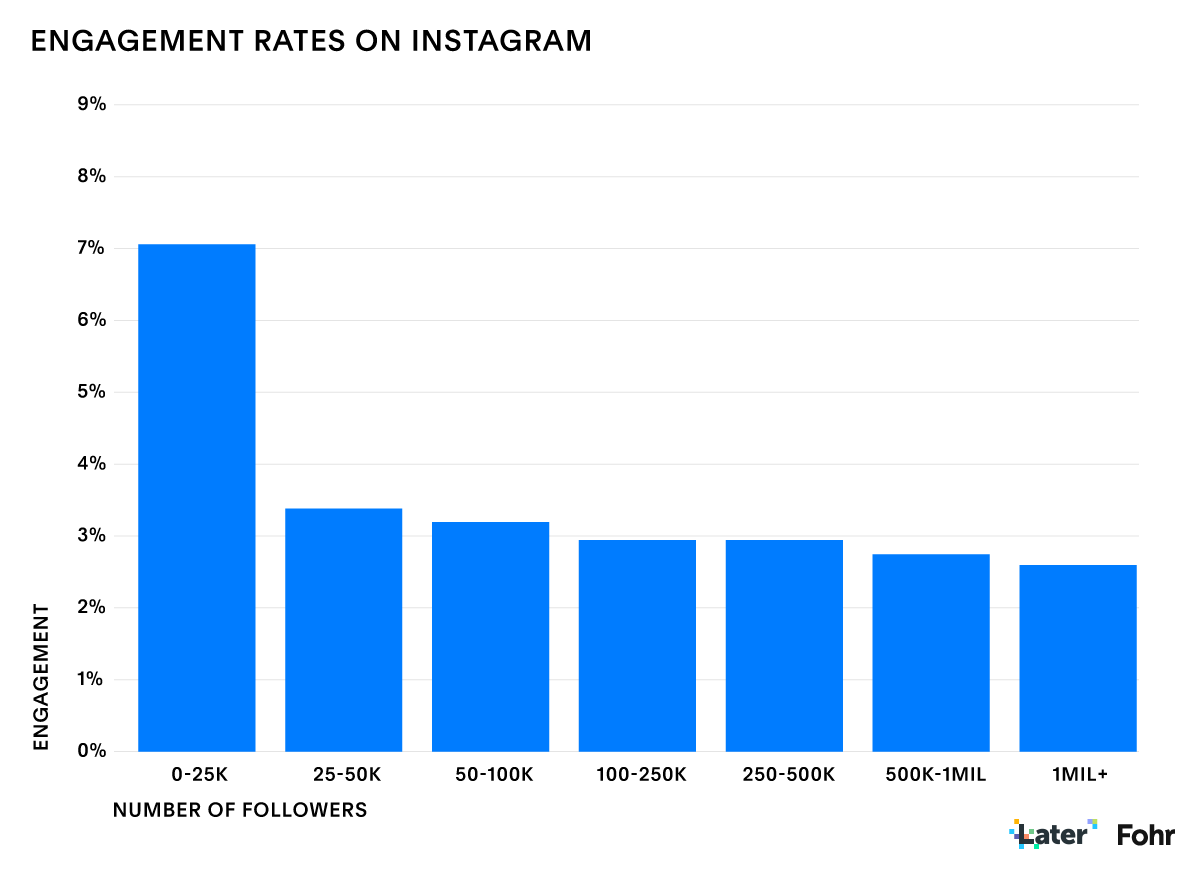
Take a look at fashion and parenting influencer Sarah Ferguson who regularly works with children’s brands on her feed:
With just 20K followers, Sarah’s sponsored post received almost 900 likes and 122 comments from her loyal community!
Not sure how to find the right influencers for your campaign? We’ve broken it down into 7 easy steps in this blog post!
Influencer Marketing Report Trend #6: Macro-influencers Post More Sponsored Content to Their Feeds
Influencer marketing is going to become more popular in 2020, as both brands and influencers have started to reap the benefits.
But for brands, that means paying close attention to how often your influencer partners are posting sponsored posts to their feed.
While not inherently “bad,” the risk of having too much sponsored content on their feed could lead to content saturation. No one wants to see sponsored post, after sponsored post, from their favorite influencers.
If an influencer’s audience is seeing too much sponsored content, it could mean that they become immune to it — and the partnership may feel less genuine to an influencer’s audience.
After analyzing how much of an influencers’ feed was made up of sponsored posts or brand collaborations, Fohr found that influencers with higher followings are posting more sponsored content.
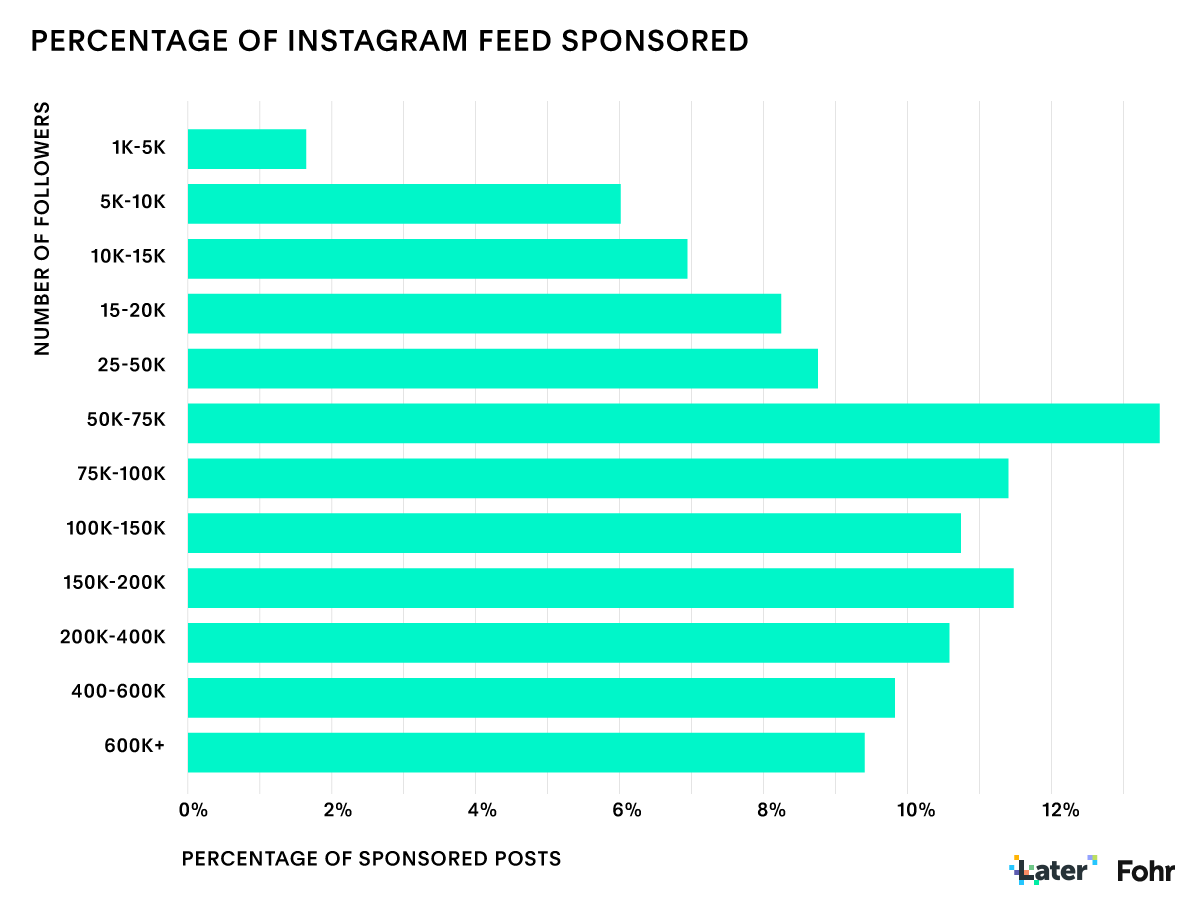
But from a logical perspective this does make sense. As an influencer gains popularity. they’re more likely to be discovered by partner brands and approached about campaign opportunities.
However, we discovered two big exceptions to this trend that brands can take advantage of:
Influencers between 50-75K followers on Instagram are posting the most sponsored content out of any other tier.
The sponsored content percentage begins to drop once an influencer’s following exceeds 200K.
So when looking for the perfect influencer to work with, it’s worth reviewing the sponsored posts that are already on their feed, along with their follower count.
If you’re only seeing occasional sponsored posts, you’re probably in good shape to keep working with them, especially if they fall into the micro-influencer tier.
But if you’re seeing tons of #ads on their feed, you might want to diversify how you present your campaign.
Consider including Instagram Stories takeovers, hosting IGTV videos, or working on a longer-term project which establishes better brand recognition with your influencers’ followers.
Influencer marketing is showing no sign of slowing down in 2020 — and for good reason, it can have a serious payout for both brands and influencers alike.
Incorporating influencer marketing into your Instagram strategy can provide incredible opportunities for businesses that want to leverage visual content and reach new and engaged audiences.
And there’s tons more trends and insights to share! Here’s a snap shot of what you’ll learn:
#1. How to choose between nano-, micro- and macro-influencers, and which ones deliver the best results
#2. How to improve your hashtag strategy for influencer marketing in 2020 (+ creating a branded hashtag for your campaigns!)
#3. What influencer content is getting the most engagement on Instagram
#4. Understanding your influencers’ audience and location, and how to use it to your campaign advantage
#5. How to take your Instagram influencer marketing to a global scale
Download The State of Instagram Influencer Marketing Report now — it’s 52 pages of actionable tips and industry insights that you can use to strategize for 2020!
